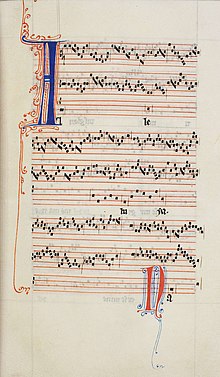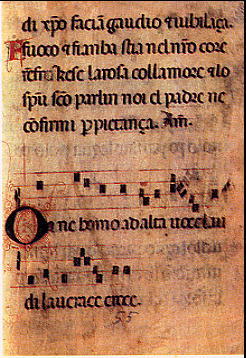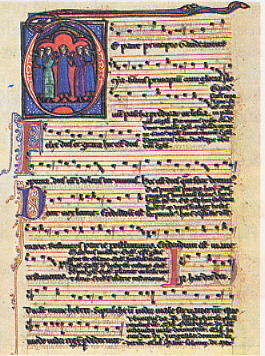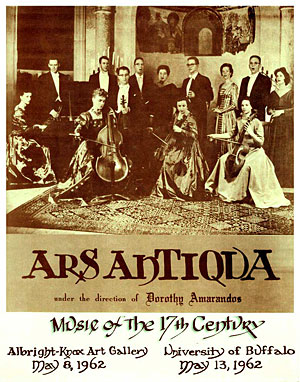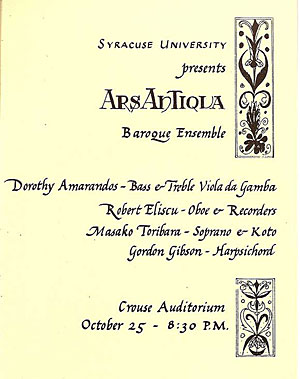Ars antiqua
Ars antiqua (lat. old art ) is the name given to the music period 1230-1330, which is based on a contemporary designation of the 14th century.
When the term Ars nova for the period from 1320 to about 1380 with Paris emerged as the center, one called in a pejorative sense to the Ars antiqua all previously composed music. In particular, the derogatory term concerned the Organum and early motets art of the 12th and 13th centuries. This had been interpreted for at least two generations in our own frühmensuralen sense. Thus, the historical circumstances were largely blurred. Only by recent research, the transition from modal to early mensural rhythm ( mode) was detected later than the middle of the 13th century as much. Today it is therefore divided this section into a Modalzeit or Notre- Dame school and reserves the term Ars antiqua the generations after Pérotin ago, the Ars Nova prepared with the development of mensural notation.
Forms of Ars antiqua
The shapes of the other Ars antiqua (besides the still well-kept unanimous secular song and dance; Trouvères ) characterized by an unprecedented boom of the motet, which replaced the Organum as the actual carrier of the main development, by the existence of Rondellus, by the fairly rapid death the conductus and the only traditional care of organum. In practice, the unanimity still increases with song and chant the most space.
Important theorist Franco of Cologne, Lambertus pseudo - Aristotle, Petrus de Cruce, Walter Odington.
Main genres of the time are the Organum, conductus, motet and Hoquetus.
The Organum is still sung, but stagnates the recreation. The conductus is very popular, but is gradually replaced by the motet. Many a time have spiritual ( Christian ) conductus secular Trouvèreslieder as a basis. The motet is the main genre of the Ars antiqua, who is also the scope for experimentation and innovation. The Hoquetus is technically set back to the Notre Dame school.
Composers
Ars Antiqua are not limited to:
- Johannes de Garlandia to 1195-1272
- Franco of Cologne (ars mensurabilis, 1280 )
- Hieronymus de Moravia, 2nd half of the 13th century
- Adam de la Halle to 1237-1287
- Petrus de Cruce, 2nd half of the 13th century
- James from Liege to 1260-1330



